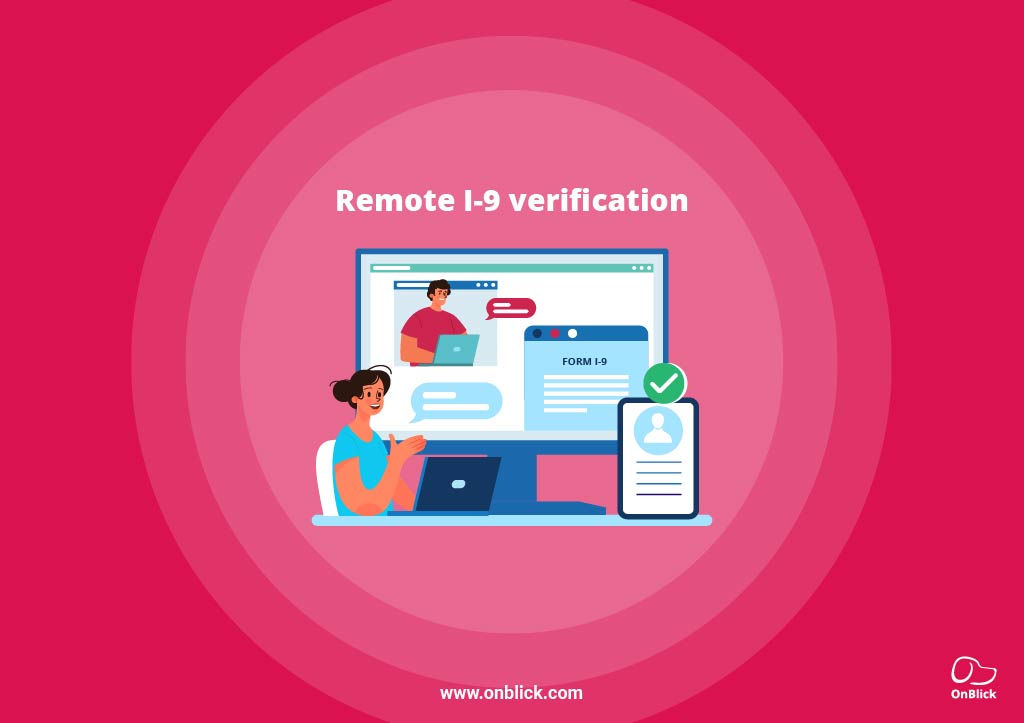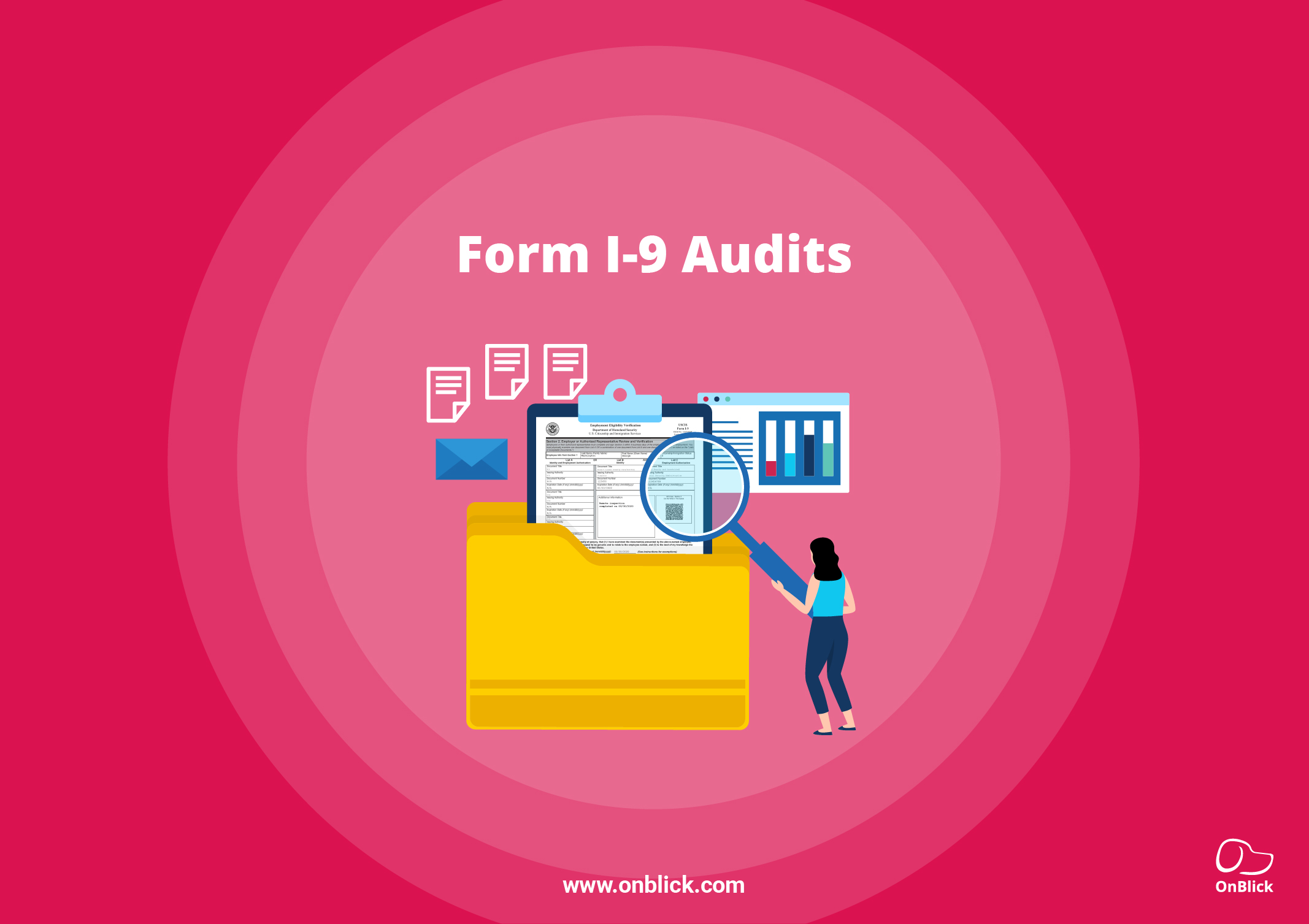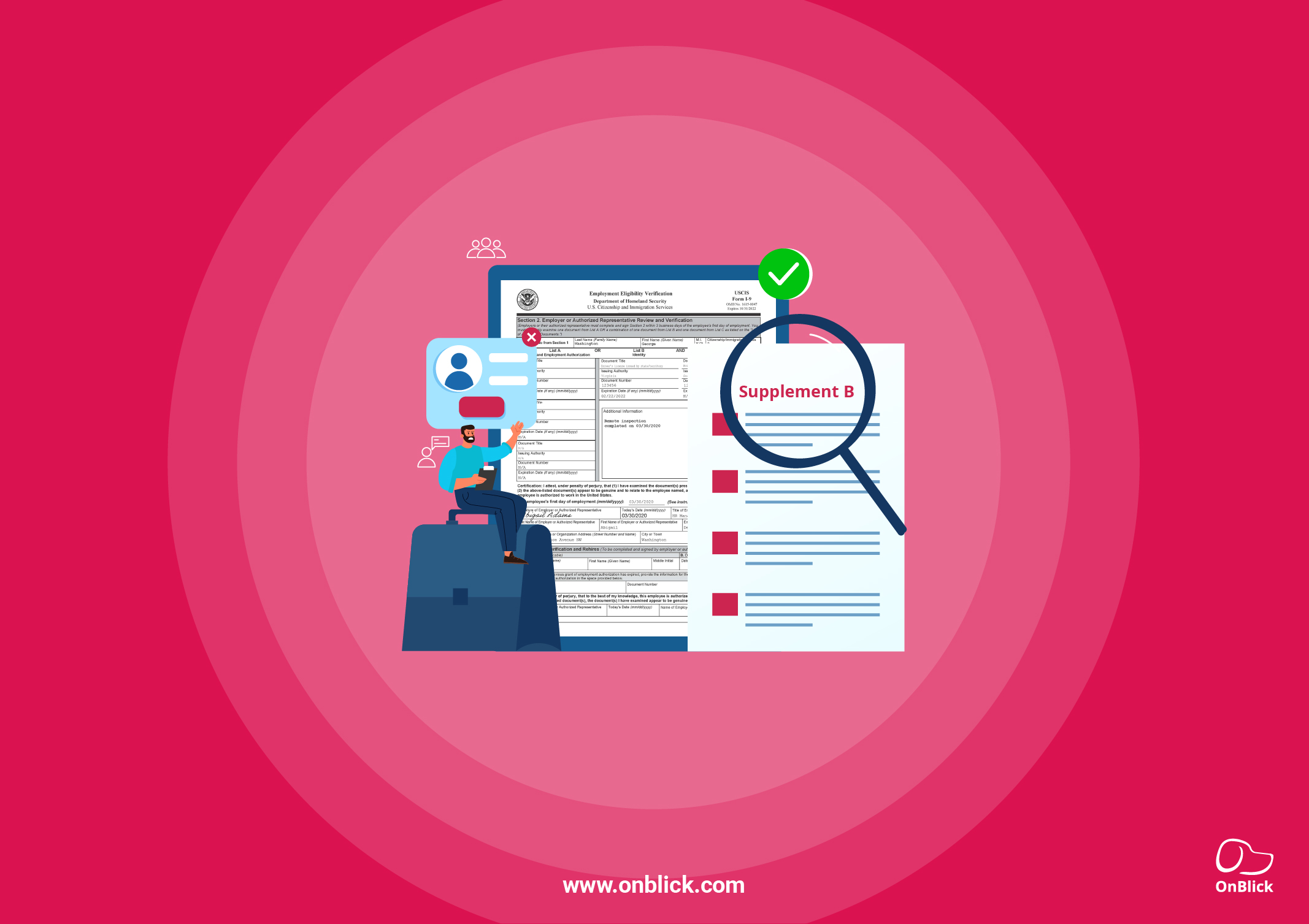In today's dynamic business landscape, organizations are increasingly embracing remote work arrangements and employing a diverse workforce that includes temporary workers, contractors, and individuals from various backgrounds. Amidst these changes, it remains crucial to uphold fair employment practices and ensure that discrimination does not creep into hiring decisions or the Form I-9 process.
This blog explores the connection between Form I-9 compliance, workplace discrimination, and strategic approaches to creating an inclusive work environment where all employees feel valued and respected.
Form I-9 Compliance
Form I-9 compliance serves as a cornerstone of lawful employment practices. This process involves verifying the identity and employment eligibility of all new hires, regardless of their employment status or location. By meticulously adhering to Form I-9 guidelines, organizations demonstrate their commitment to upholding labor laws and preventing the hiring of unauthorized workers.
However, it is essential to ensure that Form I-9 procedures are implemented in a manner that does not discriminate against any group of employees. For instance, employers should not request additional documentation or impose stricter verification measures on remote workers or temporary employees compared to on-site staff. Such practices can create unnecessary barriers and perpetuate discriminatory stereotypes.
Combating Workplace Discrimination: A Continuous Effort
Despite significant strides in promoting workplace equality, discrimination remains a persistent issue. It can manifest in various forms, including biases based on gender, race, age, disability, national origin, and other protected characteristics. These biases can have a detrimental impact on organizational dynamics, hindering productivity, fostering a culture of exclusion, and potentially leading to legal consequences.
Organizations must proactively address workplace discrimination by implementing comprehensive policies that promote fairness and inclusion. These policies should clearly outline acceptable workplace behavior, establish transparent reporting mechanisms for addressing discrimination concerns, and provide ongoing diversity and inclusion training for all employees.
Practical Strategies for Inclusive Hiring Practices
Ensuring fairness in the hiring process requires a multifaceted approach that goes beyond mere compliance with Form I-9 requirements. Organizations should adopt a holistic approach that encompasses the entire hiring process, from job descriptions and candidate screening to interviews and onboarding.
Here are some actionable strategies to promote unbiased hiring practices:
- Craft Inclusive Job Descriptions: Use gender-neutral language, avoid stereotypes, and focus on the essential skills and qualifications required for the role.
- Implement Blind Resume Reviews: Remove identifying information from resumes during the initial screening stage to mitigate unconscious biases based on race, gender, or age.
- Standardize Interview Processes: Develop a structured interview format with consistent questions and evaluation criteria to ensure fairness for all candidates.
- Provide Diversity Training: Educate hiring teams on diversity and inclusion, equipping them to recognize and overcome unconscious biases throughout the hiring process.
- Diversify the Hiring Pool: Actively seek candidates from diverse backgrounds by partnering with community organizations, attending minority-focused job fairs, and utilizing inclusive recruitment platforms.
- Regularly Review and Update Hiring Policies: Keep hiring policies up-to-date and regularly review them to ensure they align with evolving diversity and inclusion goals.
Avoiding Discrimination in the Hiring Process and Form I-9 Procedures
When verifying employment authorization and identity, organizations should treat all individuals equally, regardless of their citizenship, immigration status, or national origin. Specifically, they should avoid the following discriminatory practices:
- Implementing different rules or requirements based on an employee's citizenship, immigration status, or national origin.
- Requesting additional documentation or imposing stricter verification measures on remote workers or temporary employees compared to on-site staff.
- Requiring specific documents from a particular employee to create an E-Verify case or due to an E-Verify Tentative Nonconfirmation (mismatch).
- Demanding that an employee create a Self Check case or provide proof of employment eligibility confirmation through Self Check.
- Requesting that an employee who presented an unexpired Permanent Resident Card present a new document upon its expiration.
- Asking for specific documents during reverification. Employees should be allowed to choose from the Lists of Acceptable Documents, regardless of their citizenship or immigration status.
- Limiting jobs to U.S. citizens or other statuses unless U.S. citizenship is a legal requirement for the position.
Creating a Workplace Culture of Fairness and Respect
Upholding fair employment practices and preventing discrimination in the hiring process and Form I-9 procedures are essential steps towards creating an inclusive workplace culture. However, these efforts must be accompanied by a broader commitment to fostering a workplace that values diversity, respects individual differences, and promotes equal opportunities for all employees. Organizations should encourage open communication, provide opportunities for employees to share their perspectives, and proactively address any instances of discrimination or bias. By creating a culture of inclusivity, organizations can reap the benefits of a diverse workforce, including enhanced creativity, innovation, and problem-solving capabilities.
Summing Up
In the dynamic world of employment, organizations must remain vigilant in their efforts to promote fairness and prevent discrimination at all levels, including during the Form I-9 process and hiring practices. By embracing diversity and inclusion, organizations can not only fulfill their legal obligations but also cultivate a thriving and inclusive workplace where all employees feel valued and empowered to contribute their unique talents and perspectives.
Remember, fairness and inclusion are not just legal requirements; they are fundamental values that underpin a successful and sustainable organization. By embracing diversity and creating a workplace where everyone feels respected and valued, organizations can reap the benefits of a more engaged, productive, and innovative workforce.
How Does OnBlick Help?
In addition to the strategies outlined above for enhancing your I-9 process, consider further streamlining your compliance efforts through OnBlick's I-9 Assist solution. Our platform provides a robust and user-friendly system for managing Form I-9 compliance. This includes features such as electronic signature capabilities, reminders for re-verification, and comprehensive audit trails. With OnBlick, you can ensure that your I-9 process is not only efficient but also accurate.
For specific details about OnBlick's I-9 Assist solution and how it can benefit your organization, please don't hesitate to contact us. We're here to provide the information and support you need to strengthen your compliance processes.

.gif)

.png)
.png)



.png)







